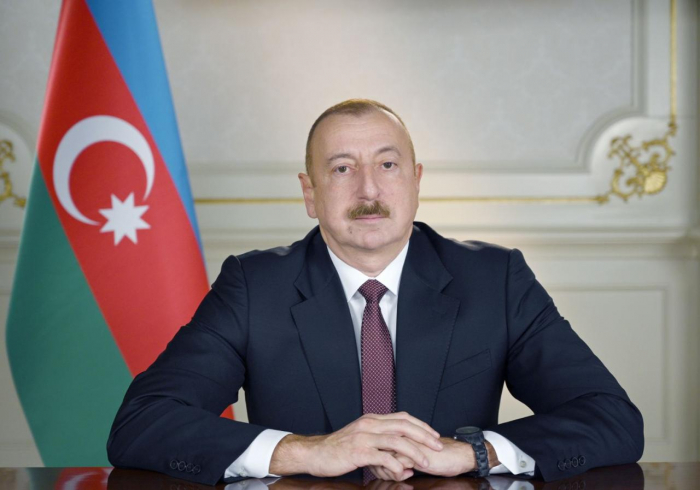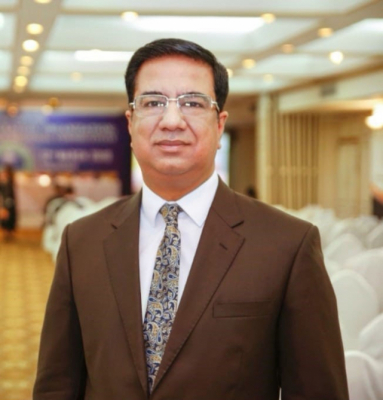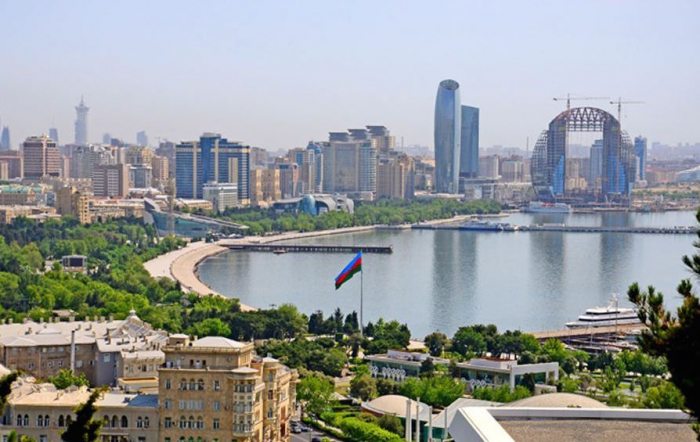By Khalid Taimur Akram
Azerbaijan has recently marked its 30th anniversary. The country has undergone significant economic transformation and development since its independence in 1991. Azerbaijan has been implementation ambitious economic reforms due to startling policies adopted by His Excellency, President Ilham Aliyev. Azerbaijan recognizes that its foreign policy objectives cannot be achieved alone. Despite possessing significant oil and gas reserves – enabling economic development, investment in infrastructure, and modernization of defense capabilities, it must also seek strong alliances, build regional cooperation frameworks and promote itself around the world. Moreover, Azerbaijan’s success in the second Karabakh war has changed the socio-economic and political dynamics of the South Caucasus. The world has witnessed remarkable success in Azerbaijan as the country has emerged as the most resilient nation under the dynamic leadership of His Excellency Ilham Aliyev.

On the other side, the structural reforms and open policy have paved the way for stable micro and macroeconomic conditions, drastically reducing inflation and growth resumption in Azerbaijan. Moreover, rapid progress has lately been made in developing market-based mechanisms in significant areas of the economy. Meanwhile, risks are heightened by the ongoing global competition over the hydrocarbon resources of the Caspian Sea, as well as the ambitions of regional powers to maintain influence in this strategic location. Under these conditions, Azerbaijan has developed several important foreign policy priorities to guide its integration into the global community. Thirty years of continued rise is mainly attributed due to the country’s foreign policy priorities that have mainly stayed the same. That is, the restoration of territorial integrity, strengthening the country’s independence, developing strong regional economic partnerships, and striving for regional stability.
Azerbaijan’s Global Assertiveness and Multilateral Frameworks
Azerbaijan actively engages in existing regional cooperation frameworks while proposing the creation of new multilateral institutions, platforms and promoting intercultural dialogue. Azerbaijan treasures its religious heritage and believes ties with the Islamic world offer valuable tools and opportunities to advance its foreign policy and economic objectives. It has fostered active engagement and cooperation with the United Nations and its specialized agencies and other regional integration arrangements. Since the start of the Covid-19 Pandemic, Azerbaijan has taken robust initiatives to tackle the deadly virus. In this aspect, many campaigns have been started and more than 80% of people are vaccinated in Azerbaijan. The government has provided socio-economic stimulus packages worth $2.7 billion to support natives and businesses. Azerbaijan has provided free vaccination to more than 30 countries and playing an active role in voluntary financial contributions. These pandemic eradication efforts have been recognized and praised by the world.
Due to the visionary policies of His Excellency President Ilham Aliyev, the regional and global outreach of Azerbaijan has been enhanced manifolds. This year marks the 60th anniversary of the Non-Aligned Movement (NAM). Azerbaijan has chaired the NAM for three years and held its 18th summit at Baku in October 2019. Azerbaijan chairmanship has extended to one more year. This shows the level of trust by all NAM member countries in Azerbaijan’s proactive role. Azerbaijan actively works bilaterally with many countries to coordinate on political issues and develop economic opportunities, including trade and investment. Only 15 years ago, Azerbaijan had 25 foreign diplomatic representations, including permanent missions to international organizations. As per an estimation, this number stands closer to 85 in present times. Pakistan and Turkey have been Azerbaijan’s main regional ally and strategic partner since independence. Strong linguistic and cultural ties are supported by regional energy projects like oil and gas pipelines, new regional railways and connectivity projects, military and humanitarian cooperation, as well as enhanced investments. This trio has developed a strong understanding of each other’s priorities and relies on regional cooperation and joint coordination around priority policy initiatives. Turkey and Pakistan have firmly supported the rightful claim of Azerbaijan during the Karabakh wars. Thereby, the mutual cooperation would create more avenues for joint ventures for collective benefits and win-win development.
Azerbaijan is determined to implement the 2030 agenda for sustainable development. The country has been actively participating in regional connectivity projects and corridors. Furthermore, Azerbaijan has been proactively playing its role to reduce CO2 emissions. The share of renewables in Azerbaijan is 17%, likely to increase in the near future. In this aspect, the prospects for clean and green energy development in the liberated territories of Azerbaijan are high. Foreign companies must enhance their investment in the liberated regions of Karabakh.
Azerbaijan towards Diversified, Resilient and Sustainable Development:
Azerbaijan’s long-term objective is to ensure the economy is more diversified and advance economic development through new drivers of non-oil growth. The long-term strategy aims to increase the country’s competitiveness further. Deepening Azerbaijan’s integration into the regional and global economy is among the objectives beyond 2025. For the government, the Strategic Road Maps are a way to cement a path for strong, sustained, and shock-resilient growth. The Strategic Road Maps have 11 identified sectors for economic growth along with four core targets:
- Strengthen fiscal sustainability and adopt a sustainable monetary policy
- Develop human capital
- Facilitate privatization and reforms for state-owned enterprises
- Create a conducive climate for business
The rapid economic development is mainly attributed to the exploitation of hydrocarbon resources (through production-sharing agreements with foreign oil companies and foreign direct investment). In this aspect, substantial reforms intended to support a market-based economy have been instrumental in facilitating growth. Moreover, Azerbaijan has signed multilateral regional integration and socio-economic development agreements with other countries to gain broader international support vis-à-vis its diplomatic narrative. Likewise, Azerbaijan’s vision 2030 and adopted strategies under its grand vision are worth praising. These major drivers would stimulate industrial innovation and give new impetus to economic growth.
Thirty years of excellent governance was possible while serving the people of Azerbaijan wholeheartedly. The leadership follows the advanced trends of social development and respects the people’s role in making history. There is no doubt that ‘’great countries are those that produce great people’’. In this aspect, it is fair to say that Azerbaijan, under the dynamic and prudent leadership of His Excellency President Ilham Aliyev, is progressing towards sustainable development and will continue to enhance its global outreach.

Khalid Taimur Akram is an Executive Director, Center for Global & Strategic Studies (CGSS), Islamabad.
More about: #Azerbaijan
















































